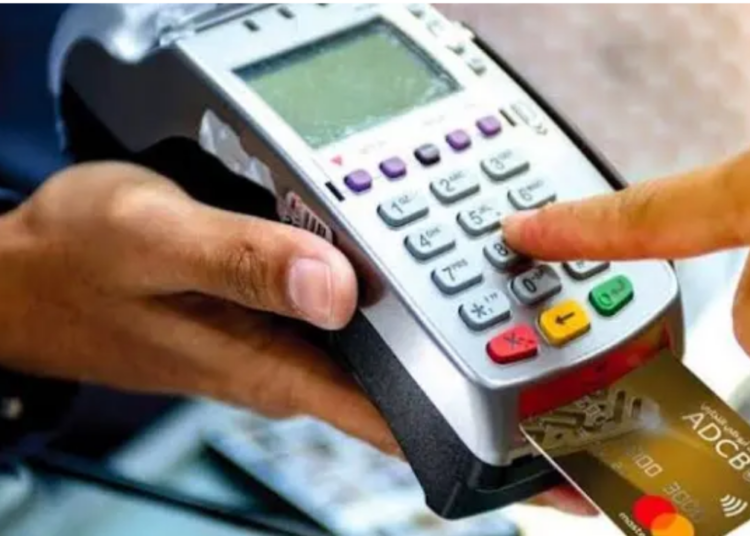Over a decade after the Central Bank of Nigeria (CBN) introduced the cashless policy with the aim of reducing the quantum of physical cash that is used in the system, Godwin Emefiele, the current governor of the CBN is working to increase its implementation in the country.
According to the apex bank, the policy was also targeted at tracking money laundering activities as well as cut down on cash handling expenses of banks. Emefiele, had noted last year that with the several investments in technology infrastructure in the Nigerian banking industry which has made electronic payment near seamless, it was high time the country went fully cashless.
Currently, the Nigerian financial system is one of the top 10 globally with the country ranked the sixth in instant payments. According to the CBN governor all infrastructure that is needed to ensure a smooth working cashless system such as the CBDC, online banking, Payment System Banks (PSBs), point of sale terminals (POS) agent banking, mobile banking and ATMs have since been deployed.
Days after the CBN governor mentioned the desire to make Nigeria a cashless economy, it announced the redesigning of the naira. More than three months after he announced the redesigning of the higher denominations of the country’s currency, the policy is still a hot topic for discussion in the country.
On October 26, 2022, the apex bank announced that it was going to redesign the N200, N500 and N1,000 denominations and urged Nigerians to swap the old naira notes with the new ones. Moving the deadline from January 31 to February 10 with a seven days grace period, the policy is generating more reactions from Nigerians as the new notes are scarce despite assurances by the apex bank that the banks should continue to load their ATMs with the new notes.
Nigerians across the country have been lamenting the scarcity of the Naira notes with some angry and frustrated bank customers vandalising the facilities of some commercial banks.
Banks Deny Hoarding New Naira Notes
However, the Association of Corporate Affairs Managers of Banks (ACAMB) faulted claims that banks are hoarding the new naira notes, as it assured that the scarcity of the currency would end soonest. President of the association, Rasheed Bolarinwa in a statement said, “ACAMB affirms without any equivocation that banks are not in any way hoarding or holding back naira notes or engaging in any act inimical to our avowed commitment to exciting customer experience.”
Why the Naira Redesign Policy?
Although many are adjusting to a life without cash due to the scarcity of the naira, many others are still craving for more cash in the system and querying the need for a redesign of the currency within just a few days to the general elections. Some are of the opinion that the currency redesign is a political gimmick targeted at some individuals ahead of the elections.
However, according to the CBN governor, redesigning of the currency is part of the manwwwcy management is a key function of the CBN, as enshrined in Section 2(b) of the CBN Act 2007. Indeed, the integrity of a local legal tender, the efficiency of its supply, as well as its efficacy in the conduct of monetary policy are some of the hallmarks of a great Central Bank.
Emefiele in defence of the redesigning explained that the general practice across the globe is that a central bank should redesign its currency within 5-8 years. He said, “From the on-set of this currency redesign program, we made it clear that for over 19 years, the CBN has not been able to undertake this important currency and liquidity management function that has important ramification for the effectiveness of monetary policy.
‘‘Generally, currency redesign policies (sometimes called demonetization policies) are designed by countries to strengthen the performance of key macroeconomic parameters and equally combat social improprieties. Chiefly, it is expected to reduce the amount of cash in underground or illicit economy, truncate the activities of racketeers, and obliterate rent-seeking businesses in the black market. By reducing currency outside banks, it will shrink money stock and accordingly lower the long-run path of inflation. The ensuing deflationary pressure could elicit interest rate cuts that will in the short- to medium-term boost economic activities, spur aggregate demand, and enhance output growth. The macroeconomic impacts of currency redesign are multidimensional and could seem uncertain especially at this early stage when its inconvenience is widespread.
‘‘By spurring more people to use bank accounts, this policy will further increase bank account ownership and increase the use of accounts by enhancing people’s saving behavior. It could encourage some hitherto informal business operators to formalise the pattern of transactions and adopt more formal settlement channels.
‘‘In addition, the short-term decline in cash holding and the increased formalisation of business activities as the cashless policy forces more economic agents to open bank accounts, will also boost fiscal policy. With more transactions going through e-channels and bank accounts, more agents come within view of the government’s tax net. This enlarges the base of taxable activities and increases the possibility of more tax receipts by various tiers of government. In the long-term, the policy improves the sophistication of tax collection and would no doubt reduce tax evasion and tax avoidance. As experiences from other jurisdictions have shown, effective currency redesign can support regulatory reform, increase legislative reach and coordinate fiscal and structural policies.’’
Vice President Yemi Osinbajo recently said that the drive for a cashless policy in the country would go a long way to curb illicit election financing in the country. Also, the presidential candidate of the Labour Party (LP) in the forthcoming general elections, Peter Obi, has expressed his support for the Naira redesign exercise carried out by the CBN.
Electronic Transactions In Place of Cash
The angst by many who would have embraced the cashless policy as well as the redesigning of the naira was built on its unreliability and ineffectiveness of the several electronic channels. Whilst banks said they have invested over N100 billion in technology infrastructure, customers say they are yet to get the desired level of service.
Some analysts had noted that this period would have been a major driver for the cashless policy. A tech analyst, John Umeh noted that the present situation has “exposed the lack of investment in technological infrastructure by banks and other organisations to take the immense opportunity that exists in Nigeria around digital payments and electronic banking.”
Going forward and to address the current situation at hand, he said, it is important that players in this space start to do more. According to him, beyond the chaos that has been created by the scarcity of cash are opportunities that exist in the digital payment space.
“Imagine the number of transactions that could be processed, per minute with everybody doing digital payments. So, it is a call to invest more in infrastructure. It is a call for players in that space to strengthen their processes so that we can all enjoy and reap the benefits of digital payment and digital banking.”
What Is Cashless Policy?
Speaking on the cashless policy, an economist, Dr Micheal Ajayi, noted that it is an initiative to reduce the amount of physical cash in circulation thereby encouraging the use of electronic platforms for settlement or payment for goods and services. He said, ‘‘Going cashless is not supposed to be controversial in a fast-growing economy such as ours. It helps to curb corruption and the flow of black money, which results in an increase of economic growth.’’
Also, a bank chief who pleaded anonymity said the world today drives on innovation and speed has become an element of development which is what the various digital cashless platforms offer. He said, ‘‘The only gap to bridge regarding the cashless policy is improvement in the accompanying technology such that incidences of failed transactions are reduced or even eliminated. The public should understand that bank notes with all their security features are expensive to print and any policy that increases the length of time they can stay in the monetary system before they are turned over should be encouraged.
‘‘The cashless transfer policy posts more benefits. Going cashless not only eases one’s life but also helps authenticate and formalise the transactions that are done. This helps to curb corruption and the flow of black money, which results in an increase of economic growth.’’
An IT expert, James Obiora said going cashless also has health benefits. ‘‘With physical currency, the chance of spreading of germs is more. Reducing the amount of use of paper currency will reduce the germ transmission,’’ he said.





